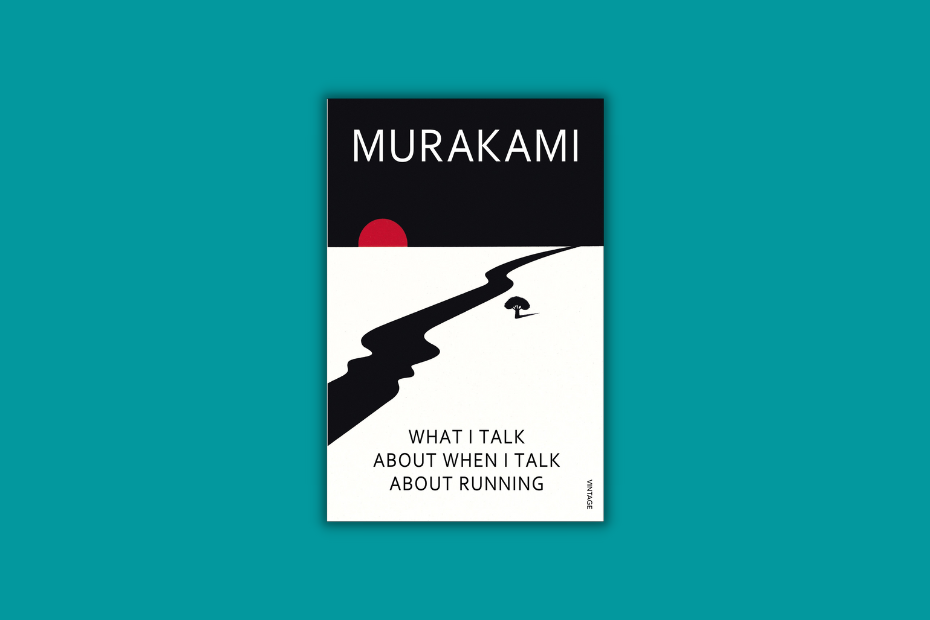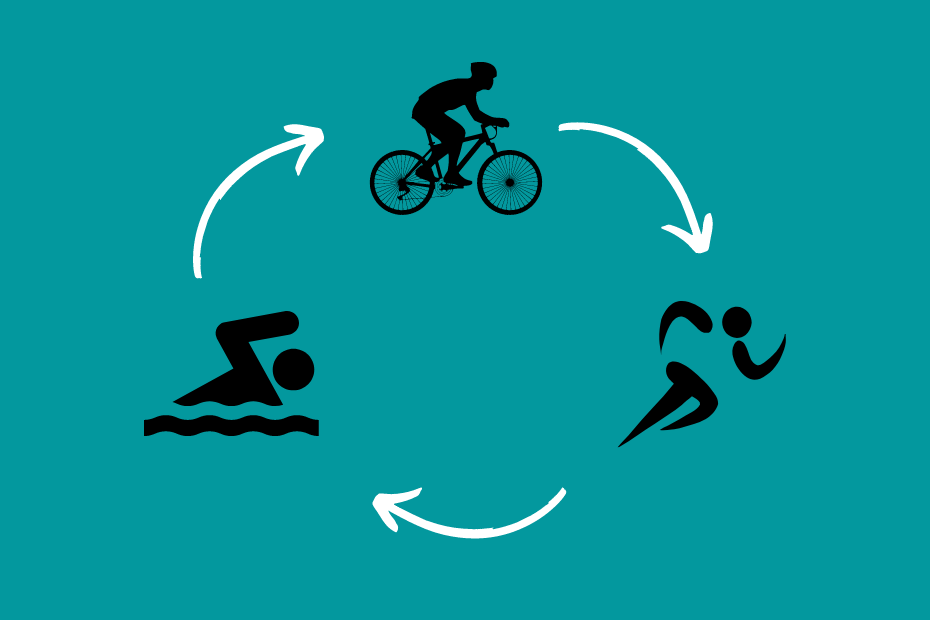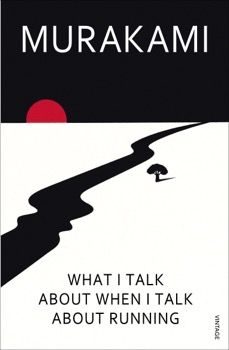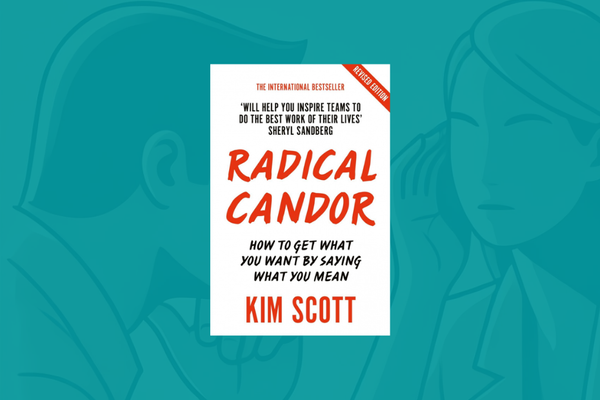What I Talk About When I Talk About Running - Summary
Haruki Murakami’s collection of memoirs about running is an inside view of the writer's everyday training and struggles through the years. It is not just about running but life (like most of the Murakami novels).

Besides having mesmerizing novels I love to read, Murakami wrote novels reliably over the years. He writes like running a marathon and always finishes with a good time.
I like running, but I am far away from being a good runner. So if one of my favorite writers published a book about running, I read it.
Murakami puts so much life and real experience into his fiction that I was curious about what he can tell me when he is writing non-fiction.
Reading What I Talk About When I Talk About Running was a unique experience.
It is extremely detail-oriented when it comes to running (how much and how often did Murakami run, how did he feel during the races, best places, and weather to train), but also it touches on subjects much more important than running.
Murakami uses running as a metaphor to talk about life.
Since I think this book has immense value for non-runners as well, I try my best to summarize the main lessons I learned while reading What I Talk About When I Talk About Running.
Summary: What I Talk About When I Talk About Running
Murakami is starting the book with the recognition he observed during writing a book about running. Mainly that writing about running and writing about himself is almost the same thing.
The author shares a lot of practical advice which can be applied to running a marathon but is even better for living a life worth living.
Running personality, focus, burnout, endurance, and aging.
We will touch most of them:
When winning is relative, standards matter
There is no sure way to determine the quality of a novel. You can look at the number of sales, or the popularity of a book, but they are man-made concepts and do not really reflect the quality of the work.
When winning is relative it is much more important to achieve our own standard of good.
Writing a good book based on our own terms, running a good enough time.
When your personality requires total commitment
Murakami was running a bar until his thirties. Out of curiosity, he attempted to write a novel. He liked it, and the novel was received well, so he started to write more. He reached a crossroads: if he want to focus on writing he have to do something with the bar.
His friends suggested he hire someone to run the bar, but instead, he closed the bar and double down on writing.
As he writes:
"I’m the kind of person who has to totally commit to whatever I do. I just couldn’t do something clever like writing a novel while someone else ran the business."
The sport that suits your personality
Endurance is important for writing, and it is also crucial for running.
Murakami picked a sport that suited his personality and helped him develop habits he could take advantage of in other areas of his life.
Focus and endurance
To write well you need talent or you need time. You have to sit and do focused work for a long period of time (three or four hours per day) every day through the years.
Based on Murakami’s experience if you are short on talent, you can still improve your ability to focus and your endurance capabilities. And running can help you do both.
Effort matters even if the goal looks stupid

After a triathlon race, Murakami was pondering on the seemingly pointless nature of his sport. Everyone goes back home to train for the next race. Run an insane amount, swim and cycle to do the same during the next competition.
He uses the metaphor of pouring water into an old pan with holes. Even if water is flowing out, the effort you put into the job remains.
Keep gas in the tank for the next round
How to decide how much effort is enough? Murakami’s anti-burnout tip is to push yourself until the point when you still have enough in the tank to carry over to the next day.
This is valid for running and writing as well.
What to listen to, what to think about while running?
Murakami is listening to jazz and rock (Red Hot Chili Peppers, Gorillaz, and Beck) while running. It matches the rhythm of running.
Is he figuring out characters and scenes while running? Not really.
He writes:
"But really as I run, I don’t think much of anything worth mentioning."
To deal with unhealthy be healthy
After switching from running a bar to writing a novel Murakami started to gain weight. Managing a bar required hard physical labor, while sitting ten hours straight didn’t really burn the same amount of calories.
His energy level also decreased which doesn’t help in a profession where focus and endurance are key.
He started to run as a way to compensate for the unhealthy part of his writing lifestyle.
Or as he writes:
"To deal with something unhealthy, a person needs to be as healthy as possible. That’s my motto. In other words, an unhealthy soul requires a healthy body."
Two days rule
Murakami used to run every day. But he is a busy man and his obligations which often involve travel sometimes make this challenging.
He observed over the years the three most likely causes of failure when running a marathon:
- Not enough training
- Not enough training
- And not enough training
To combat this likely cause of failure even in times when he is running less than he used to, he follows a basic rule:
Never skip running two days in a row.
The finish lines are man-made
In The Psychology of Money Morgan Housel writes about how one of the most likely causes of unhappiness is moving the goalpost after reaching our target.
Murakami reminds us that we made those goalposts:
"The end of the race is just a temporary marker without much significance. It’s the same with our lives. Just because there’s an end doesn’t mean existence has meaning. An end point is simply set up as a temporary marker, or perhaps as an indirect metaphor for the fleeting nature of existence."
Different paces, different people
During one of his runs, Murakami observes two girls (probably from elite universities) who are running at a much faster pace than the experienced runner himself.
He reminds us that others have their own space and own time.
This is a call to action for not comparing ourselves to each other all the time.
It is frustrating when someone is advancing you on the running track. But maybe she runs less that day, maybe she has decades of experience in running, or simply she has other goals.
In the arts, aging may help
It is touching to read about how Murakami realized he can not run the best time of his life anymore. He is running for decades, but still, he can not manage to outrun time.
Everyone reaches their physical peak.
Though we usually reach the best physical capabilities in our twenties/thirties, our peak performance in the arts is much more unreliable.
Dostoyevsky wrote a few of his best novels before his death, in his sixties.
Domenico Scarlatti wrote most of his sonatas between fifty-seven and sixty-two.
Run till can
Despite leaving his peak years behind, Murakami runs and plans to run.
"Even when I grow old and feeble, when people warn me it’s about time to throw in the towel, I won’t care. As long as my body allows, I’ll keep on running. Even if my time gets worse, I’ll keep on putting in as much effort—perhaps even more effort—toward my goal of finishing a marathon."
My Review of What I Talk About When I Talk About Running
I am biased when determining whether this book is a good read for you or not. I picked What I Talk About When I Talk About Running, because I like the author's other books, though the risk was there: I have never read non-fiction from Murakami.
The book was also a good fit for me because I am / I want to be a runner. I could relate to the metaphors, and the challenges and this made reading this book even more valuable.
What I Talk About When I Talk About Running is a short read. 192 pages. If you have read any Murakami books, if you are running, or if you like simple, but beautiful tinkering about life, then you should give a chance to this book.




